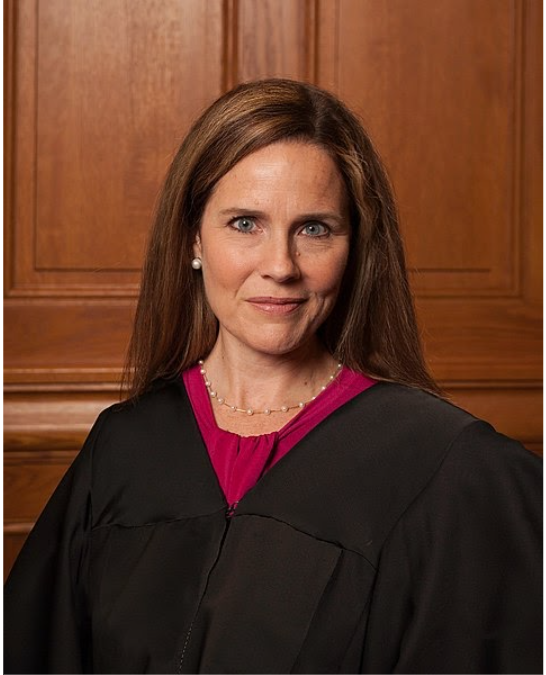
Photo: Wikimedia Commons
Amy Coney Barrett was officially confirmed to the Supreme Court of the United States with a 52-48 vote on Monday, October 26. Barett was President Donald Trump’s replacement nominee for the late Ruth Bader Ginsburg who passed in late September.
With Barrett’s confirmation, the Supreme Court now has a 6-3 conservative majority. As a result, many people are concerned about the future in regard to the pandemic, climate change, the Affordable Care Act (ACA), Roe v. Wade and more.
Barrett had two years of private practice experience and 15 years of teaching experience as a law professor at Notre Dame before her nomination. She also served as a clerk for the late Justice Antonin Scalia. Many critics pointed out during her nomination process that she had never tried a case or argued an appeal and had only served as a judge in appeals court since 2017. Most of her cases as of October 2020 involved civil matters instead of criminal ones.
During the confirmation hearings, Barret was asked about her stance on climate change by Senator Kamala Harris.
“You know, “I’m certainly not a scientist. I’ve read things about climate change, I would not say I have firm views on it. I will not express a view on a matter of public policy, especially one that is politically controversial,” Barrett said. She did agree, however, that the coronavirus is infectious.
Another issue that came up during the hearings was healthcare. On November 10, the Supreme Court will hear a case on the Affordable Care Act, which has been a popular topic in the recent presidential debates. A popular worry of Americans has been that if they have pre-existing conditions, they will no longer have coverage if Trump was successful with having it struck down in court.
“I’m not here on a mission to destroy the Affordable Care Act,” Barrett said.
She further explained that the Affordable Care Act case has to do with severability and the presumption “is always in favor of severability.” Barrett maintained throughout the hearings that she had not made a deal or had discussed the matter prior with the president before her nomination and there was no agenda in place.
“I have no animus for the Affordable Care Act,” Barrett said.
Abortions were another discussion topic along with ‘super-precedents’ which are cases that shouldn’t be overturned because they are established law. Democrats explicitly asked Barrett several times about her views on abortion and the historical case of Roe v. Wade, but Barrett would not state if she believed one way or the other.
“Roe is not a super-precedent because calls for its overruling have never ceased, but that doesn’t mean that Roe should be overruled,” Barrett said.
Barrett was also asked to name all of the protections that are listed under the first amendment, but could only name four out of the five protections.
The final major issue that came up in Barrett’s hearing was the issue of election results and presidential pardons. With the 2020 election less than a week away, officials were concerned that Barrett will be rushed into the court.
“I certainly hope that all members of the committee have more confidence in my integrity than to think I would allow myself to be used as a pawn to decide this election for the American people,” Barrett said.
Before Barrett was confirmed though, an approximate 60 million plus votes had already been cast for the presidential election.
Barrett was also questioned on what would happen in the event that the president failed to accept a ruling. She explained that she couldn’t answer the question because the issue has never been tested in court before and she argued that judges are not policymakers.
“No person is above the law. The Supreme Court can’t control whether or not the president obeys,” Barrett said.
The hearings revealed little information on Barrett’s exact political views but instead, many argued, revealed her approach of adhering to the law instead of interpreting it.
“This is the first time in American history that we’ve nominated a woman who is unashamedly pro-life and embraces her faith without apology,” Republican Senator Lindsay Graham said. Barrett has been a well-known advocate of catholicism.
Barrett’s first day on the court as an Associate Justice was Tuesday, Oct. 27 and she will be expected to hear election-related cases in the following weeks.
